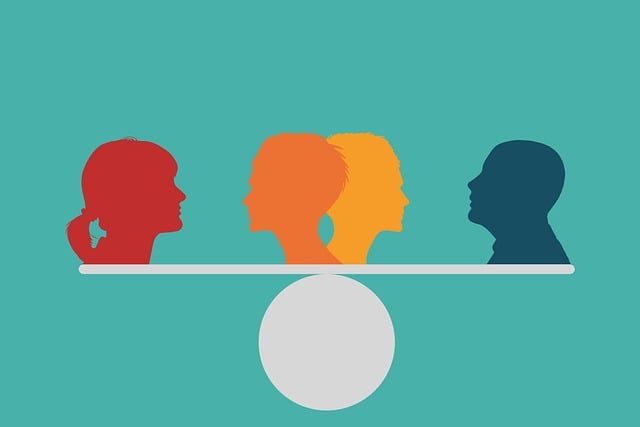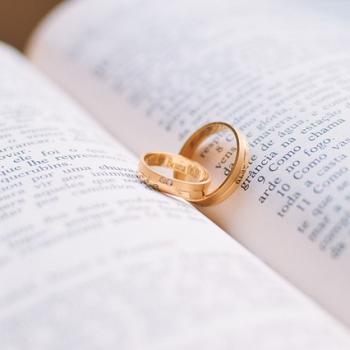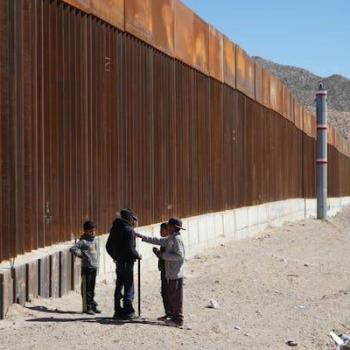
What do U.S. religious groups believe on transgender issues?
THE RELIGION GUY’S ANSWER:
This topic is pertinent just now for two reasons. First, an upcoming U.S. Supreme Court decision due by June will determine whether 26 states are allowed to restrict or forbid gender transition treatments for minors (U.S. v. Skrmetti, docket #23-477). Second, President Donald Trump has just issued a series of new executive orders to shape government transgender policy in line with his 2024 campain platform, which pundits say helped seal his victory.
Trump’s orders, which are already provoking federal court challenges, oppose the following: Funding or other support for transition treatments with patients under age 19. Legal status for multiple genders rather than two. Defining a person’s “sex” as different from the biological gender shown at birth. Teaching of so-called “gender ideology” or offering of transition assistance by tax-supported schools. Transgender members of the military. And – featured in so many headlines – athletes born male who identify as female competing in women’s sports.
With religion, these are relatively recent public controversies, which might explain why “mainline” Protestant and Jewish groups that regularly assert liberal views did not file briefs in the Supreme Court case (although see more below). Meanwhile, the Catholic Church, conservative Protestants, Latter-day Saints, and Orthodox Jews build upon the 2,000-year heritage of a strictly “binary” Bible. The same with Muslims and the Quran.
Catholic
Representing U.S. Catholicism, Bishop Robert Barron of Minnesota, chairman of the bishops’ Committee on Laity, Marriage, Family Life and Youth, praised Trump’s opposition to youth transitions, which have risen notably. To Barron, these are “unacceptable,” “dangerous,” and “must end.”
Efforts to change a youth’s sex are “based on a false understanding of human nature,” Barron contended. “So many young people who have been victims of this ideological crusade have profound regrets over its life-altering consequences, such as infertility and lifelong dependence on costly hormone therapies that have significant side effects.”
Catholic teaching was reaffirmed in the 2015 report to Pope Francis from international delegates attending a Synod of Bishops in Rome. They stated that the new gender “ideology” denies “the difference and reciprocity in nature of a man and a woman and envisages a society without gender differences.” The educational and legal results promote a personal identity “radically separated from the biological difference between male and female. Consequently, human identity becomes the choice of the individual” and is changeable. The bishops insisted humanity’s creation as depicted in biblical Genesis 1:27 means “the difference between the sexes bears in itself the image and likeness of God.”
Pope Francis, who is often considered a liberal among pontiffs, endorsed the Synod’s statements in his 2016 “apostolic exhortation” Amoris Letitia, and in 2019 he approved the Vatican’s strict education decree “Male and Female He Created Them.” Last year, he endorsed a lengthy “declaration” from the Vatican’s doctrine office, Dignitas Infinita, which lists “gender ideology” among regrettable current assaults upon “human dignity.” Text here: www.catholic.org.nz/assets/Dignitas-Infinita-Inglese-.pdf/
Protestant
America’s largest Protestant denomination, the Southern Baptist Convention (SBC), typifying conservative and “evangelical” belief in general, unites with Catholicism in its most recent resolution, from 2023. See www.sbc.net/resource-library/resolutions/on-opposing-gender-transitions/ The SBC’s public policy spokesman Brent Leatherwood lauded Trump’s opposition to “the radical gender madness that has plagued our government,” adding that “culture is consumed by the fiction of gender fluidity.”
He said transitions “go against God’s design for gender and sexuality and perpetrate permanent, detrimental harms against children, both physically and psychologically.”
Leatherwood has urged Congress to turn Trump’s edict into permanent law, and endorses Trump’s order barring trans athletes because “our biological realities cannot be ignored, and any attempt to do so will inevitably bring harm to women and our society.”
The Church of Jesus Christ of Latter-day Saint
The Church of Jesus Christ of Latter-day Saints (or LDS, long nicknamed “Mormon”) defined current policy last August in the latest revision of its “General Handbook.”
The manual says persons who feel “their inner sense of gender does not align with their biological sex at birth” share “divine worth” with all people, deserve compassion, and are welcome to attend worship. But they cannot receive the priesthood normally granted male church members, or hold specified church offices, or enter temples for important ceremonies.
The church teaches against transitions, or identifying or “presenting” oneself differently from birth gender.
Islam
American Islam’s most authoritative summation is a 2022 paper by Yasir Qadhi, dean of The Islamic Seminary of America, posted by the Fiqh Council of North America, which he chairs. He states “there are simply too many verses in the Quran that refer to the two sexes for us to deny a fundamental gender binary” in God’s creation of humanity, which is permanently identified in each person’s DNA.
Gender as a “cultural human construct with no necessary link to biological sex” is regarded as “untenable” under Islamic law, human history, biology, and “common sense.”
However, transgender “feelings over which a person has no control are not sinful if not acted upon.”
Judaism
Orthodox Judaism has opposed the bodily modifications through surgery and hormones that transitions involve, as well as altered “presentation” in names, pronouns, attire, and grooming. The retired executive vice president of the Orthodox Union, Rabbi Tzvi Hersh Weinreb, says most rabbis believe religious law means that “birth gender” is simply the “gender for life.” However, he personally thinks the sanctity of life permits transition if a “gender dysphoria” patient is suicidal.
Religious advocacy in favor of transgender rights is less visible and vocal, but is gaining ground in the U.S.
With U.S. Judaism, the Reform branch in 2003 admitted the first openly transgender rabbinical student. In 2015, its Central Conference of American Rabbis directed congregations to consider rabbi candidates regardless of gender identity.
That same year, Reform’s synagogue union affirmed “the full equality, inclusion and acceptance of people of all gender identities and gender expression,” including “the right of transgender and gender non-conforming individuals to be referred to by their name, gender, and pronoun of preference.”
Judaism’s Conservative branch followed in 2016 with a Rabbinical Assembly resolution committed to “the full welcome, acceptance, and inclusion of people of all gender identities in Jewish life and general society.” All Conservative schools, camps, and agencies are to create “fully inclusive settings” and teach Jews that transgender and gender non-conforming people need “to be known by the identity, name, and pronoun of their choice.”
Presbyterian
With “Mainline” Protestant denominations, one example of changing beliefs is the Presbyterian Church (USA), which in 1996 approved the clergy status of a pastor who transitioned from male to female.
A 2018 declaration commits the denomination to “inclusion of transgender people, people who identify as gender non-binary, and people of all gender identities within the full life of the church and the world.” In the United Church of Christ, leaders and agencies ardently advocate for transgender concerns.
This follows a 2003 General Synod resolution affirming that “transgender and intersexual people are currently offering valuable ministry within the United Church of Christ, both as lay people and as clergy.” The UCC sponsors a Coalition for Lesbian, Gay, Bisexual and Transgender Concerns.
Unitarian
The Unitarian Universalist Association established a similar Office of Bisexual, Gay, Lesbian and Transgender Concerns as early as 1996. In 2002,o the first openly transgender parish minister was hired. A 2007 General Assembly resolution urged affirmation of transgender persons in the life of its congregations, employment, and public advocacy.
Further resources:
The Human Rights Campaign, an LGBT advocate, posts further U.S. religion information, including on Buddhism and Hinduism: https://www.hrc.org/resources/faith-positions/
For current American Medical Association policy, search “gender affirming” at https://policysearch.ama-assn.org/policyfinder/
A detailed, Bible-based policy of the 13,000-member Christian Medical and Dental Association addresses, among other things, rare birth anomalies of conflict between genetic and bodily characteristics. See “Transgender Identification” at https://cmda.org/policy-issues-home/position-statements/
Skepticism about transgender research in this much-discussed 2024 British survey has changed National Health policy: https://cass.independent-review.uk/home/publications/final-report/













